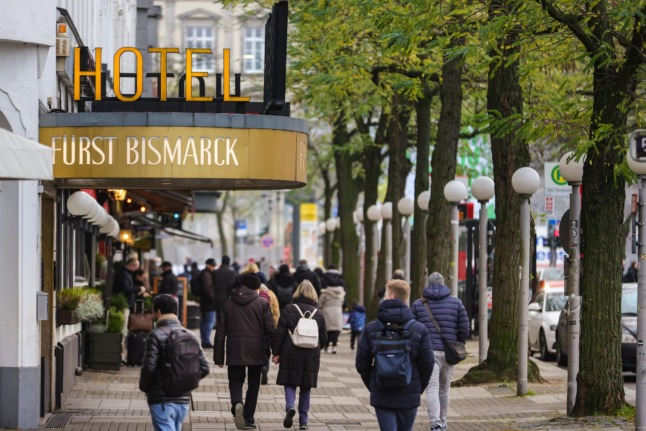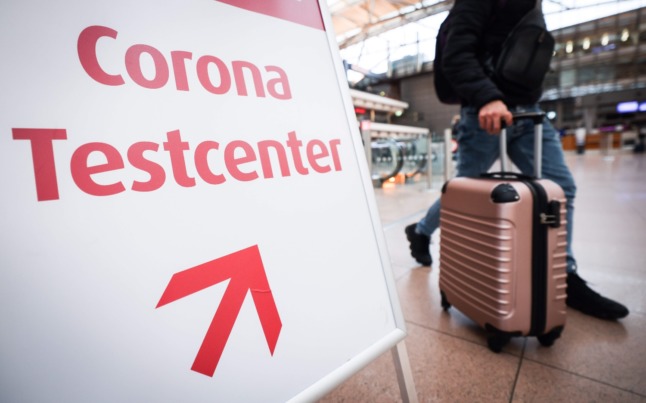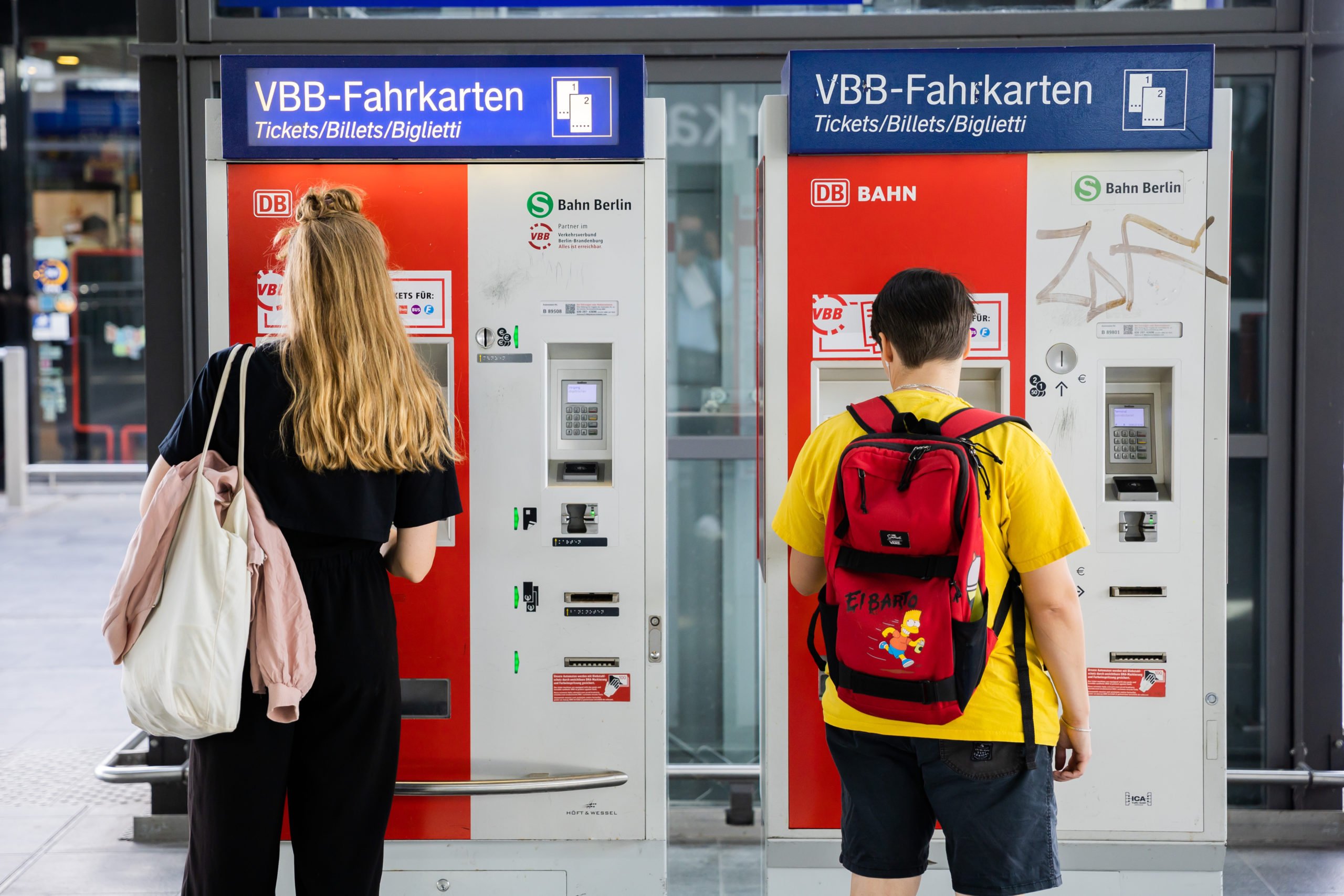Lots of foreigners in Germany booked their trips weeks or months ago, with dreams of heading home. Or some of us might have snagged a fancy hotel elsewhere in Germany to see in 2022 with a glass of champagne and steak in bed.
But with the discovery of the Omicron variant and a growing number of Covid cases in some countries (we’re worryingly looking at you, UK), things look a lot more uncertain again.
Are people in Germany allowed to travel?
Yes. There are no rules that say you cannot travel at the moment.
There are, however, strict regulations you have to be familiar with on returning to Germany from abroad. These rules depend on the category of the country you’re coming from – whether it’s a ‘no-risk’, ‘high-risk’ or ‘virus variant area of concern’.
You can read more about the general current travel rules in our recent article here:
Is travel to and from Germany possible at Christmas?
And you can keep up to date with Germany’s risk countries on the Robert Koch Institute (RKI) list, which is updated regularly.
If you are travelling abroad you also have to be aware of the Covid rules of the destination country you’re going to. For instance, the UK has tightened its testing rules for arrivals, and is bringing in more restrictions for people living there.
READ ALSO: UPDATE: The new rules for travel between Germany and the UK
Within Germany, most accommodation – like hotels and holiday apartments – remains open, but strict rules apply such as 2G (you have to be vaccinated or recovered from Covid) or 2G-plus (you have to be vaccinated, recovered and show a negative test). Check with the hotel you are travelling to.

There may be some closures of overnight accommodation in badly affected districts in the states of Saxony and Bavaria because these two states have experienced the strictest lockdown measures this winter. Again, check with the rules of the state, and the hotel or holiday apartment operator you want to visit before travel.
What’s the advice on travel at Christmas?
Germany has seen the infection situation stabilise in recent days but experts say the number of cases is still too high. On Tuesday the nationwide 7-day incidence was 375 Covid infections per 100,000 people.
In its latest report dated December 9th, Germany’s RKI for disease control strongly advised that “all unnecessary contacts should be reduced and travel avoided”.
The RKI estimates the risk to the health of unvaccinated or partially vaccinated people in Germany as “very high” overall. For the fully vaccinated, the risk is considered “moderate, but increases as the number of infections rises”.
Many German political leaders are generally urging people not to travel during the festive season – even domestically. That’s because they want to see people reduce their contacts to slow the spread of Covid-19 infections.
On December 5th Transport Minister Volker Wissing (FDP) advised against travelling in the Christmas holidays.
“The winter of 2021 will be more dramatic than the winter of 2020,” he told Bild am Sonntag. “We must not take corona lightly.
“Contact restrictions, even in the private sphere, are important to combat the pandemic,” he said. “In the current situation, it seems more sensible to spend Christmas in a small circle at home and not plan any major trips around the country.”
However, CSU state group leader Alexander Dobrindt slammed Wissing’s advice, saying it gave the wrong message.
“There is no ban on leaving Germany, nor is there a ban on travelling within Germany during the Christmas holidays,” Dobrindt told the Augsburger Allgemeine newspaper.
“Of course travel is possible, and of course in compliance with the corona rules.”
North Rhine-Westphalia’s state premier Hendrik Wüst last week also advised against people travelling over Christmas for trips that are not essential.
“I advise everyone to hold back on dissolute trips and travelling long distances,” Wüst said, adding, that no travel was currently banned.
Should I still go ahead with travel and socialising?
It’s important to note that the advice from politicians and health experts is a recommendation rather than an order.
Ultimately the choice is up to you, and will depend on risk factors like if you are fully vaccinated, you and your family’s health, where you are going, and the number of people you plan to meet.
People in Germany have been encouraged to do regular Covid testing when meeting up with family
FDP member of parliament and doctor Andrew Ullmann told The Local last week that he recommended rapid tests be carried out daily to help stop transmission during Christmas festivities.
In Germany self tests can be bought in most supermarkets and drugstores, while rapid test stations offer free tests.

One thing to watch out for domestically is that local partial lockdowns may be considered – but hotels will probably not be impacted.
READ ALSO: Is Germany heading for a partial Christmas lockdown?
When it comes to international travel, it is conceivable that Germany will tighten restrictions, such as its testing requirements for re-entering the country.
As The Local reported on Tuesday, Green Party health expert Janosch Dahmen urged the government to implement tougher restrictions to prepare for the rise of the Omicron variant.
He wants to see travel rules adapted so that entry to Germany from a high-risk area is only possible with a PCR test no more than 24 hours old.
Currently vaccinated and recovered people entering Germany from a high-risk area do not need to show a negative test, but unvaccinated people do. However, if coming from a ‘virus variant area of concern’, everyone has to show a negative test regardless of whether they are vaccinated or recovered.
There is also the possibility that more countries will be classified as virus variant areas if more cases of the Omicron variant – or another variant – emerge there.
But Health Minister Karl Lauterbach has remained fairly quiet on the subject of travel at Christmas time, only saying that he wants Germany to do as much as possible to push back the fourth Covid wave to allow for a safe festive period.





 Please whitelist us to continue reading.
Please whitelist us to continue reading.
Member comments